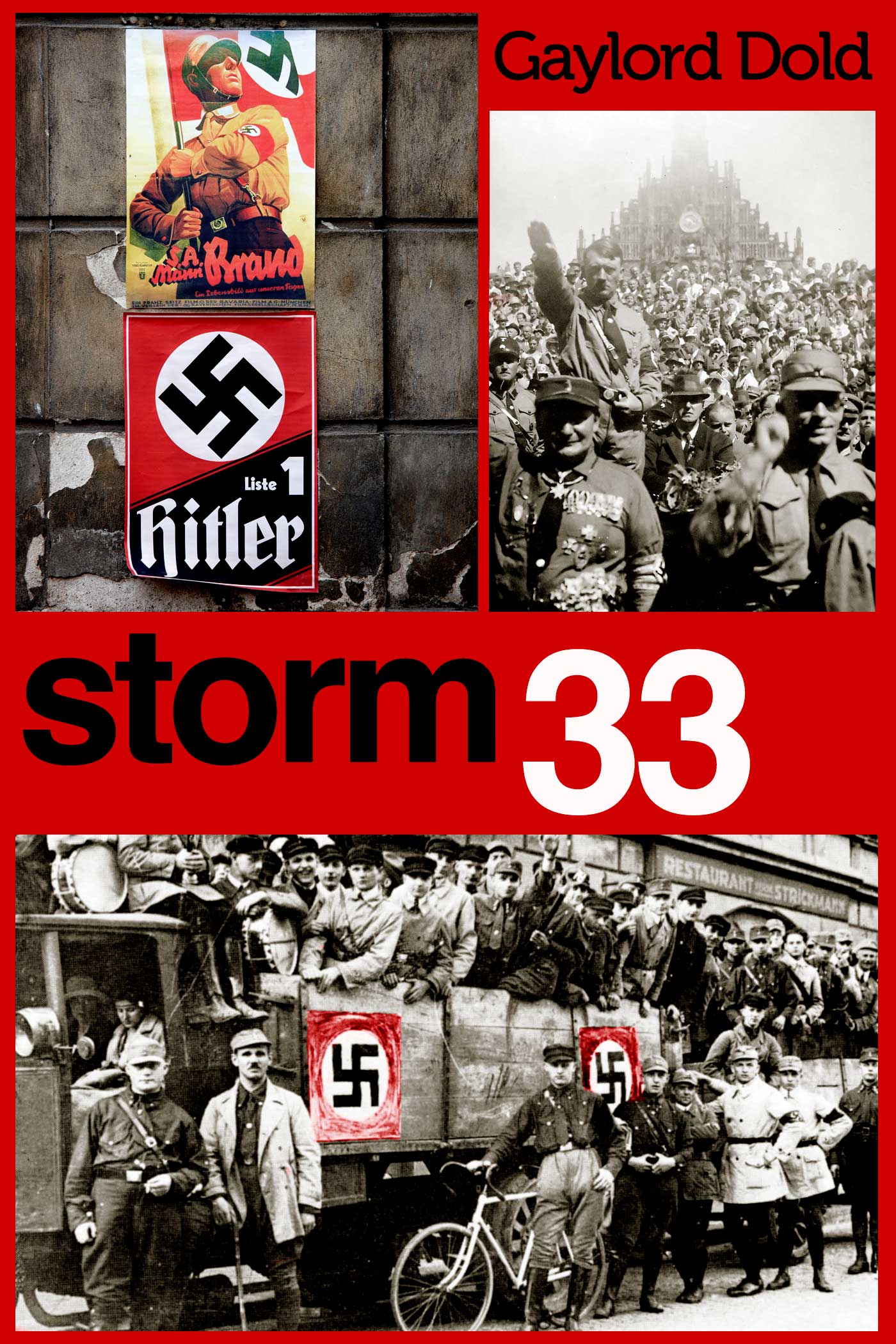Storm 33
The body lay face up in a dark cul-de-sc, eight meters off the Hirrenstrasse. The area—near Alexanderplatz police headquarters, was a communist neighborhood of brick tenements and wooden slums. Barlach would never have noticed the corpse had he not stepped away from the street to piss. As a Schupo, Barlach carried a standard police-issue 9mm “08” revolver and a sixteen inch truncheon made from black walnut wrapped with a cowhide grip. From the dark, he conducted a quick census of the communist drinkers, counting perhaps twenty. Unbuttoning his raincoat, he showed the drinkers his black leather holster and the pistol grip inside. Some of the drinking men had put down their steins on outdoor tables and were glaring at the cop. The sound of polka music seeped from the pub.
“Schupo swine,” some called.
“Come join us for a drink, Schupo!”
Berlin, 1929: Communists and Nazis battle in the streets:
On a cold, fall evening, the first body, clad in sequins and stiletto heels, is found in a dark Berlin alley. More shocking than the murder though, is the identity of the victim. Doggedly pursuing leads against a backdrop of urban violence, homicide detective Harry Wulff finds himself plunging deep into Berlin’s decadent underworld of cabarets, prostitutes and Nazi thugs. But it is not until Wulff receives a series of paper dolls foretelling more murders that he begins to unravel an elusive serial killer’s links to the rising Nazi Party. Wulff must delve into the background of a murderer whose tortured past resembles that of Germany itself, a man whose resentment and anger symbolize a society in its death throes—the end of Weimar. Fearing for his life and that of his beautiful Jewish lover, Johanna, he must confront the relentless onslaught of evil that has come upon him.
With Storm 33, Gaylord Dold evokes the macabre spectacle that was the Berlin of Hitler, Goebbels and Goering. Through meticulous detail and masterful storytelling, Storm 33 is both eloquent and chilling.
The story of Harry Wulff is the story of everyman who has ever battled to stay afloat in a sea of insanity. Dold captures the oppressive, threatening mood of Germany in the last days of the Weimar Republic. He combines this with a series of brutal slayings involving transvestites, providing a chilling and provocative novel that lingers in the mind.Ann Helmuth
Orlando Sentinel
Dold fosters an atmosphere of sordid menace.Publisher’s Weekly


